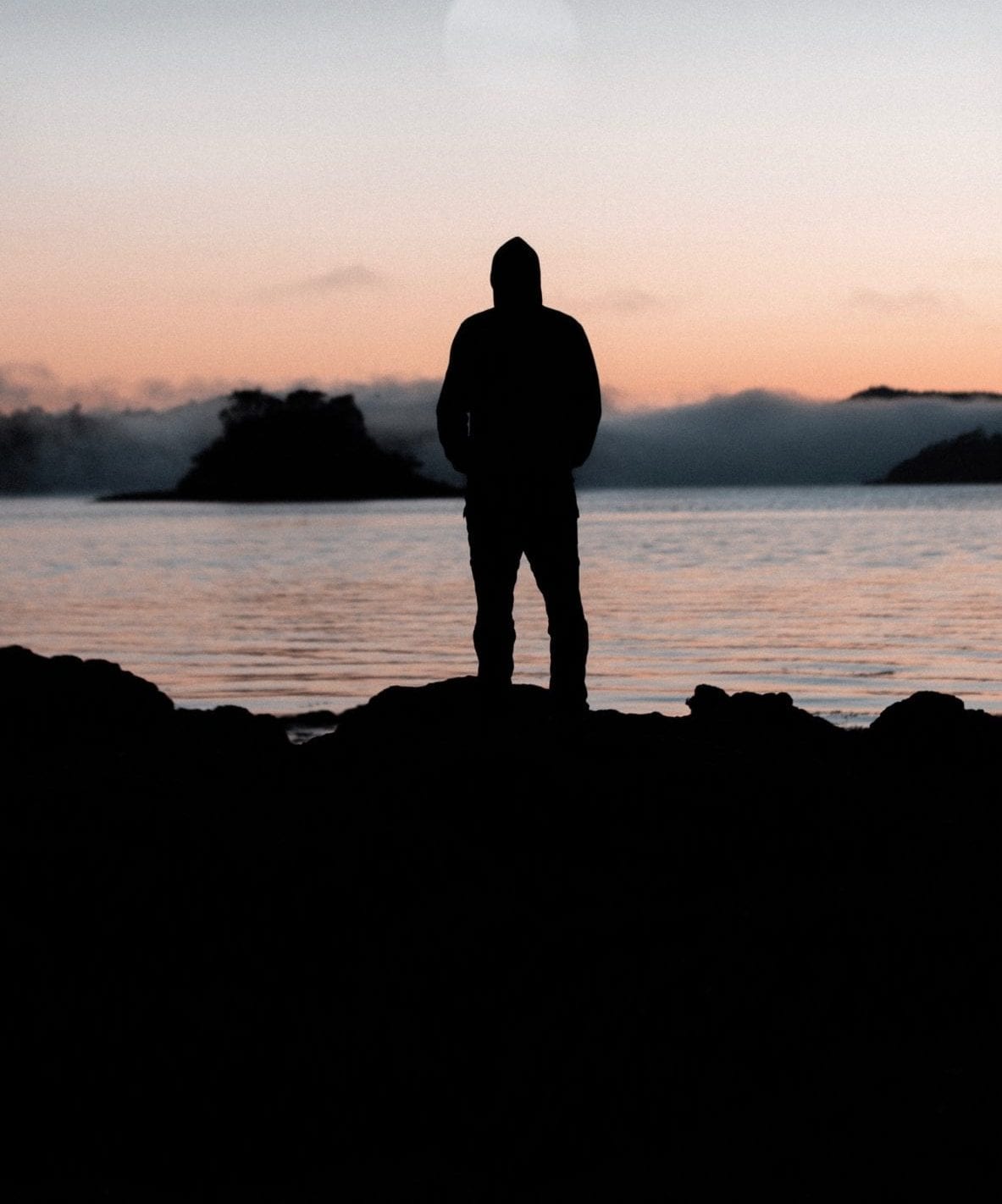
I see him just after sunrise most Sunday mornings, when I run at the lake. Partially covered by a frayed and faded gray bandana, his long salt and pepper dreadlocks hang down over his thick shoulders and muscular frame. Beside him on the ground lay his few belongings, which fit neatly into two large duffel bags fastened to a folding steel utility cart.
Holding a makeshift walking stick, he often stands at the water’s edge and stares across the lake; at times quietly, sometimes speaking, occasionally chanting with rhythmic intonations.
Each morning when I run on the north side of the lake, I anticipate seeing this man and wonder what he will be doing. I have seen him shout in frustration, shaking his fist while he looks to the sky. I’ve watched him plead in desperation with his opened hands in front of his face. I have even seen him on his knees in a posture of reverence, his head bowed and hands clasped, and heard his tone of peaceful resolve.
Whatever his mood or posture, he says his truth over the waters.
We have never spoken, but I imagine him being there to cast out his demons, those tied to poverty, homelessness, mental illness, and perhaps other difficulties. I might have it all wrong of course; it’s presumptuous of me to imagine in this way. But something about the waters draws him there, day after day, week after week, year after year.
Is it their serenity, beauty, or power to birth and sustain life? Is it their qualities of renewal, or ability to help bracket daily struggles, leaving us feeling more grounded and whole?
On any given day, hundreds of other runners, walkers, and cyclists pass by him as they traverse the 10-mile trail that wraps around the lake. A few people offer a half glance in his direction. Some catch him peripherally and quicken their pace. Most seem unfazed. Perhaps their own demons, or those of loved ones, consume them.
Parkinson’s disease can itself feel demonic, and precisely because it proves so consuming. It grabs and takes hold of you and over time requires more of your attention and energy while simultaneously draining it away.
As Parkinson’s progresses, it may also bring additional symptoms that need managing—muscle cramping (dystonia), tremors, gait or balance problems, swallowing difficulties, sleep disturbance, constipation, and more. Progression usually requires taking more medicine. With this medicine come side effects, as well as extra trips to the drug store and added visits to multiple care providers: movement disorder specialists, physical therapists, and speech therapists. This cascade of events can prompt consuming anxiety or depression—or both—which creates a need for adding still more care team members, more medicine, and yet more therapeutic support.
Having Parkinson’s is a full time gig, day after day, week after week, year after year.
Which brings me back to the man at the lake. At first blush, he and I have so little in common; me so privileged and resourced, he presumably poor, homeless, mentally ill, and living at the margins. But I believe we both live with demons tethered to chronic illness, and we both try to limit their power, their all-consuming grip, in our journeys to the waters, he by speaking, me by running; and I wonder if, like me, his presence there gives him a sense of freedom that comes with feeling fully alive.
Either way, I am drawn to him; I am drawn to his shouting, his pleading, his bowing at the water’s edge.
You might be, too.
_______
Photo by Gantas Vaičiulėnas from Pexels
Allan Cole is a professor in The Steve Hicks School of Social Work at The University of Texas at Austin. Diagnosed with Parkinson’s in 2016, at the age of 48, he serves on the Board of Directors at Power for Parkinson’s, a non-profit organization that provides free exercise, dance, and singing classes for people living with Parkinson’s disease in Central Texas, and globally via instructional videos. He also serves as a Community Advocate for ParkinsonsDisease.net, writing columns about living well with Parkinson’s. He is author or editor of 10 books on a range of topics related to bereavement, anxiety, and spirituality. Currently, he is writing a book on counseling people with Parkinson’s disease, which will be published by Oxford University Press.
Follow him on Twitter: PDWiseBlog
